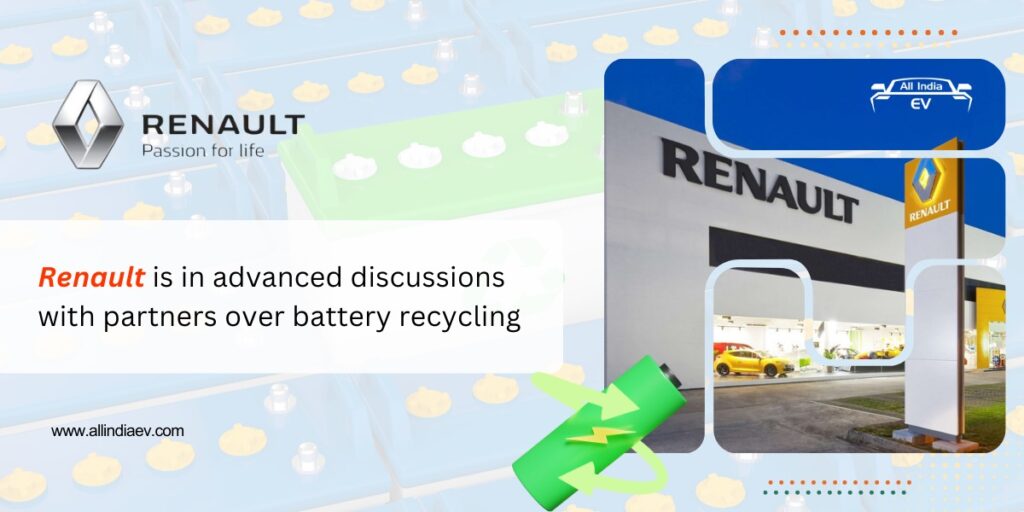
Renault Nears Agreement with Collaborators for Battery Recycling, Executive Reveals
Renault, the French car manufacturer, is nearing the final stages of talks with potential collaborators to undertake the extraction and recycling of lithium and additional metals from expired electric vehicle (EV) batteries, according to a senior company official. This initiative is part of Renault’s broader strategy to repurpose critical raw materials more efficiently.
While the recycling of automotive components is becoming increasingly prevalent, Renault aspires to set a precedent as the first automaker in Europe to recycle batteries on a large scale. Jean-Philippe Bahuaud, the CEO of Renault’s environmental division, ‘The Future Is Neutral’ (TFIN), highlighted the absence of any European entity currently capable of recycling used batteries in a closed-loop system to reclaim nickel, cobalt, and lithium for the creation of new batteries.
In preparation for the ChangeNOW conference in Paris, Bahuaud revealed that discussions with specialist recycling firms are significantly progressing. He emphasized the strategic disadvantage Europe faces due to its dependency on non-European sources, particularly China, for the majority of the battery metals essential for EVs. Additionally, he pointed out the potential for considerable cost reductions through metal recovery, noting that these metals can constitute up to 70% of a battery’s price, which in turn can make up to 40% of the total cost of the vehicle.
Eramet, a mining company, has plans to establish a battery recycling facility in partnership with the waste management firm Suez at the Dunkirk port in northern France, aiming to commence operations next year, pending a final investment decision. Despite Renault’s pioneering efforts in electric vehicles, alongside its partner Nissan, being overshadowed by Tesla and several Chinese competitors, its Renault and Dacia brands continue to hold strong positions in the European EV market.
Starting April, Renault will halt new vehicle production at its Flins factory, west of Paris, to transition entirely to the manufacture of partially recycled automotive parts and refurbished vehicles. Bahuaud anticipates that Flins will refurbish 9,000 batteries within the year. Renault offers these batteries and other reconditioned components, such as electric motors and chargers, at a 30% reduction compared to new items. TFIN aims to achieve sales of 2.3 billion euros ($2.49 billion) and an operating margin exceeding 10% by 2030.
